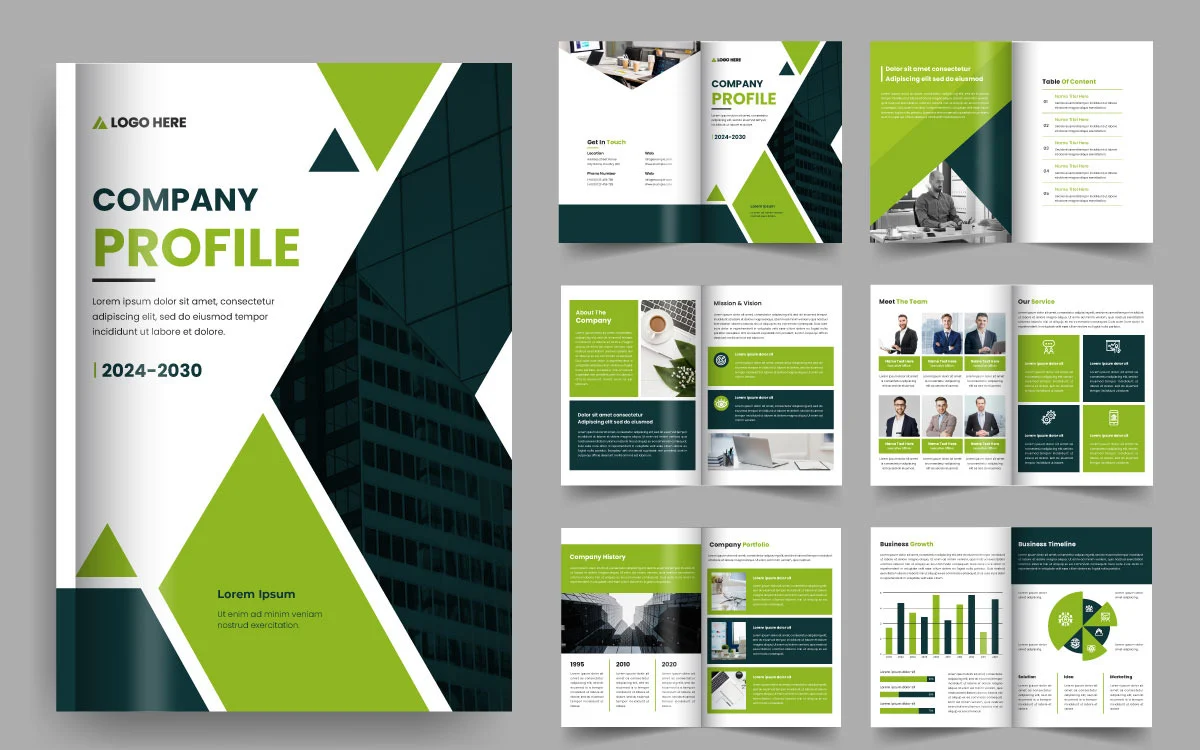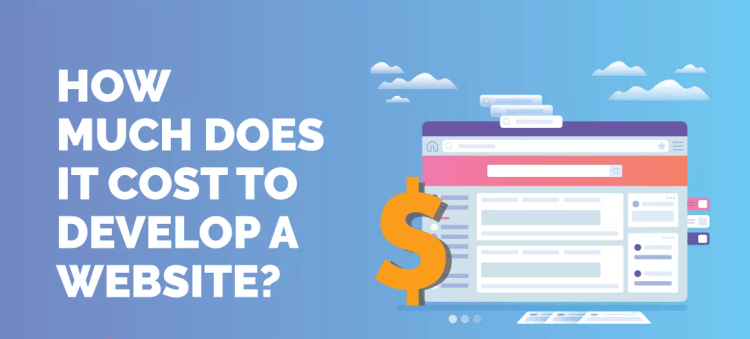Is website development an asset or expense
In todays digital age, having an online presence is crucial for businesses of all sizes. A website serves as a virtual storefront, representing a companys brand, products, and services to a global audience. In todays fast-paced digital world, having an online presence is not just a choice but a necessity for businesses. A website serves as a virtual storefront, providing an avenue for companies to engage with their target audience, showcase their products or services, and build brand credibility. However, when considering the financial implications of website development, the question arises: is it an asset or an expense? However, when it comes to financial accounting, the classification of website development as an asset or expense has been a subject of debate. In this article, we will explore both perspectives and evaluate whether website development should be considered an asset or an expense.
The Traditional View: Website Development as an Expense
Traditionally, businesses have categorized website development as an expense, mainly due to the initial costs involved. From hiring web designers and developers to purchasing domain names and hosting services, the upfront investment can be significant. Moreover, ongoing expenses for maintenance, updates, and security further contribute to the perception that a website is an ongoing liability.
Website designing company in Lucknow

According to traditional accounting principles, website development is often considered an expense rather than an asset. The rationale behind this view is that website development costs are typically incurred to create and maintain a website, which does not generate future economic benefits beyond the current period. Expenses, in accounting terms, are costs incurred to generate revenue during a specific period. Therefore, the expenses associated with website development, such as design, coding, hosting, and maintenance, are treated as operating expenses that directly impact the current financial period.
The Modern Perspective: Website Development as an Asset
However, as technology and business practices have evolved, an increasing number of experts argue that website development should be classified as an asset. However, it is crucial to look beyond the initial expenses and delve into the long-term value a website can bring to a business. This view is supported by several compelling arguments:
Website designing company in Lucknow
- Long-Term Value
A well-designed and functional website can provide long-term benefits to a business. It can enhance brand image, attract potential customers, generate leads, facilitate e-commerce transactions, and serve as a platform for customer engagement. These benefits can extend beyond the immediate period and create value for the business over an extended period.
- Return on Investment (ROI)
Just like other assets, a website can generate a return on investment. By driving traffic, converting leads, and increasing sales, a well-executed website can directly contribute to a companys bottom line. The revenue generated from online activities can be significant and make the initial investment in website development worthwhile.
- Market Competitiveness
In todays highly competitive marketplace, a professional and user-friendly website is essential for staying ahead of the competition. A website that effectively showcases products, provides information, and offers a seamless user experience can give a business a competitive edge. In this context, website development becomes an investment in maintaining and improving market position.
- Tangible Value
While a website may not have a physical form, it can still possess value that can be measured and quantified. From a valuation perspective, a well-established website with a solid user base and a positive reputation can be an attractive asset during mergers, acquisitions, or valuation exercises.
- Enhanced Online Visibility
In the digital age, consumers increasingly turn to search engines and online platforms to find products and services. A well-designed website optimized for search engines can significantly improve a businesss online visibility. By investing in website development, companies can reach a wider audience and attract potential customers who may have otherwise remained unaware of their offerings. This increased visibility can directly contribute to revenue growth, making the website an asset rather than a mere expense.
- Brand Building and Credibility
A website provides a platform for businesses to showcase their brand identity, values, and unique selling propositions. It serves as a digital storefront that customers can visit anytime, anywhere. A professionally designed and informative website creates a positive impression and enhances the brands credibility. When customers perceive a company as trustworthy and reliable, they are more likely to engage with its products or services. Thus, a website acts as an asset by supporting brand building efforts and establishing credibility in the market.
- Lead Generation and Conversion
A well-optimized website can act as a powerful lead generation tool. By incorporating effective call-to-action buttons, contact forms, and lead capture mechanisms, businesses can convert website visitors into potential leads. These leads can then be nurtured through email marketing campaigns, ultimately leading to higher conversion rates and increased sales. As a result, the website becomes a valuable asset that contributes directly to revenue generation.
- Cost-Effective Marketing Channel
Compared to traditional marketing channels, such as print advertisements or physical store expansions, a website offers a cost-effective way to promote products and services. Through search engine optimization (SEO), social media integration, and content marketing strategies, businesses can attract targeted traffic to their website without significant ongoing expenses. This makes website development a strategic asset, allowing companies to maximize their marketing efforts within a controlled budget.
Website designing company in Lucknow
- Adaptability and Scalability
Unlike physical assets, a website offers the advantage of adaptability and scalability. It can easily be updated, expanded, and modified to accommodate changing business needs, market trends, and customer preferences. With the right content management system (CMS) and development framework, businesses can ensure their website remains up-to-date and relevant, allowing them to stay competitive in the ever-evolving digital landscape.
The classification of website development as an asset or expense ultimately depends on the perspective taken. While traditional accounting principles consider website development as an expense, the modern view recognizes the long-term value and return on investment that a well-developed website can provide. By classifying website development as an asset, businesses can acknowledge the potential benefits, both tangible and intangible, that their online presence can bring.
From a strategic standpoint, treating website development as an asset encourages businesses to invest in high-quality web development, ongoing maintenance, and regular updates to maximize its value. A website should be viewed as a dynamic and evolving entity that requires continuous investment to adapt to changing market needs and user expectations.
Considering website development as an asset reflects the growing recognition of the importance of a strong online presence in todays business landscape. Businesses that embrace this perspective can leverage their websites as valuable assets that drive growth, revenue, and market competitiveness.
While website development entails upfront costs and ongoing expenses, it should be seen as an asset rather than a mere expense. A well-designed and strategically developed website can enhance online visibility, establish brand credibility, generate leads, and provide a cost-effective marketing channel. With its adaptability and scalability, a website offers long-term value and contributes to the growth and success of a business. Therefore, viewing website development as an asset is essential for harnessing the full potential of a digital presence in todays business landscape.
Understanding the Difference Between Assets and Expenses
In the world of finance and accounting, it is crucial to differentiate between assets and expenses. Assets and expenses are fundamental concepts that play a significant role in assessing the financial health of individuals and businesses. Lets delve into the key characteristics and distinctions between assets and expenses to gain a clear understanding of these terms.
Assets: Building Blocks of Value
Assets can be thought of as economic resources that hold value and have the potential to provide future benefits to an individual or a business. Here are some important aspects of assets:
- Ownership: Assets are something that an individual or a company owns or controls. They represent the ownership stake or interest in something tangible or intangible.
- Value and Durability: Assets have a monetary value and are expected to retain or appreciate their worth over time. They can exist in various forms, such as cash, property, equipment, investments, intellectual property, or even goodwill.
- Future Benefits: Assets are expected to provide future economic benefits, such as generating income, enhancing operational capabilities, or contributing to the growth and success of an entity.
- Longevity: Assets are typically long-term in nature and have a useful life that extends beyond the current accounting period. They are not consumed or used up immediately but are utilized over an extended period.
Examples of assets include real estate properties, vehicles, machinery, cash and cash equivalents, stocks, patents, trademarks, and customer databases. These assets are recorded on the balance sheet of an individual or business, reflecting their value and contributing to the overall net worth.
Expenses: Costs of Doing Business
Expenses, on the other hand, represent the costs incurred in the normal course of business operations or personal activities. Expenses are associated with the consumption or utilization of assets, services, or resources to generate revenue or support daily operations. Here are some key features of expenses:
- Consumption: Expenses are related to the consumption or utilization of goods, services, or resources. They are incurred when assets or resources are used up or services are rendered.
- Immediate Impact: Unlike assets, expenses are recognized and recorded in the accounting period in which they are incurred. They are typically related to the day-to-day operations and activities of an individual or business.
- Revenue Generation: Expenses are incurred to support revenue-generating activities or maintain the operational functionality of an entity. They are essential for the smooth functioning of a business but do not hold long-term value.
- Short-term in Nature: Expenses are usually short-term in nature and are expected to be incurred and consumed within the current accounting period. They are necessary to keep the business running but do not contribute directly to long-term value creation.
Examples of expenses include employee salaries, rent, utilities, marketing expenses, office supplies, and maintenance costs. These expenses are recorded on the income statement, reducing the overall profitability and net income of an individual or business.
Key Differences Difference Between Assets and Expenses
While assets and expenses both have financial implications, there are significant differences between the two:
Timing: Assets represent long-term value and are expected to provide future benefits, while expenses are immediate costs incurred during daily operations.
Duration: Assets have a longer lifespan and contribute to the overall value of an entity, whereas expenses are short-term costs associated with the consumption of resources.
Placement on Financial Statements: Assets are recorded on the balance sheet, reflecting the value and net worth of an entity, while expenses are recorded on the income statement, impacting profitability and net income.
Value Creation: Assets create long-term value and contribute to revenue generation, growth, and success, while expenses are necessary costs incurred to support daily operations but do not directly create value.
Assets and expenses are distinct concepts with different characteristics and purposes. Assets represent long-term value, future benefits, and ownership stake, while expenses are immediate costs associated with daily operations. Understanding the difference between assets and expenses is essential for effective financial management and decision-making, enabling individuals and businesses to assess their financial position, track profitability, and plan for sustainable growth.
Categories: Website Designing and Development Company












Leave a comment